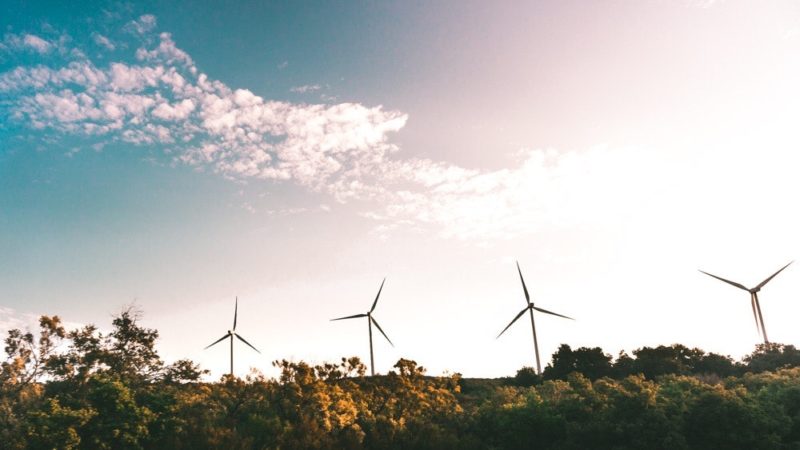
This week, Labour conference approved one of the most ambitious decarbonisation targets of any industrialised nation – net-zero by 2030. This would not have been possible without Labour for a Green New Deal’s grassroots campaign, nor the rising tide of dire climate predictions and the actions of youth strikers and Extinction Rebellion in putting climate change back on the mainstream political agenda.
A raft of policy proposals that would see the workweek shortened, £83bn of investment in publicly owned offshore wind farms, as well as £6bn put toward supercharging the electrification of vehicles, gives a rough idea of how Labour would implement a Green New Deal and make good on the 2030 target. However, surrounding the net-zero target are anxieties around Labour’s commitment to international justice – i.e. can Labour achieve net-zero by 2030 without exploiting the lands and peoples of the Global South?
In principle, net-zero basically just means that carbon emissions are balanced by carbon removal, such as by emitters planting or acquiring forests. Yet, historically, this carbon balancing has meant land grabs in the Global South and the displacement of food-growing cropland for fuel-growing cropland. For proponents of an internationalist Green New Deal, sacrificing the peoples of the Global South in the name of Western development is non-optional. If we’re unwilling to export our emissions-reduction responsibilities abroad, our only option is to find a place for our emissions on UK soil.
Labour has begun this process, demanding a review into the land-intensive sport of driven grouse shooting. Currently, grouse moors in Britain cover a landmass the size of Greater London. Due to the draining, drying and burning of land that is earmarked for grouse shooting, much land that could be storing carbon is releasing it instead. Clearing the land of vegetation and water in this way also increases the chance of flooding, devastating local towns and livelihoods.
Though grouse shooting is a huge problem, the real big bad beast when it comes to land use in Britain is animal farming. Animal farming uses up so much land in this country that grazing and growing feed for animals alone occupies a landmass that is almost equivalent to an area the size of England and Scotland combined. Add to this the fact that it provides just a third of calories consumed in the UK, despite making up 85% of Britain’s farmland, and a lot of questions start cropping up.
Fortunately, many of these questions have been answered by the Centre for Alternative Technology, which produced a brilliant report modelling what net-zero by 2030 could look like for Britain. In relation to how we use land, the report finds that we must: repurpose 75% of land used in livestock grazing; restore 50% of the UK’s peatlands; and double forest area to 24% – a mammoth task if there ever was one. Yet, if we succeed in this and the wider programme of industrial transformation required by a 2030 target, we have the potential to create up to 1.5 million new jobs.
So far, attempts to implement agricultural reforms have been fiercely opposed by the National Farmers Union. The NFU have opposed both socially progressive policies and climate focused policies that attempt to address the ills of British agriculture. They react vigorously and publicly against scientific reports that find we need to reduce meat reduction, and make distorted claims about how grass-fed meat can be part of a low-carbon future.
In fact, it’s been found that even the best grazing management systems in the UK only have the potential to balance around 20-60% of average annual emissions linked to grazing sheep and cattle. This would have a negligible impact on livestock emissions as a whole.
The Green New Deal, which recognises a need to involve working people and unions in leading the transition away from a high-carbon economy, is the only way to deal with the NFU’s obstructionist position.
Labour must co-develop a bold plan with local authorities and communities, farmers and growers, scientists and representatives from farming and growing unions to transform land-use in this country. In doing so, we could free up swathes of land in the UK and make way for nature-based climate solutions, such as rewilding or tree planting. These nature-based solutions are proven to create tens of thousands of good jobs and will replace a struggling and overly subsidised animal farming industry with a thriving eco-tourism industry.
If Labour implements radical land and agriculture reforms, we have a chance of decarbonising by 2030 without exploiting the lives of people in the Global South, while creating a greener, wilder and more beautiful country for the many, not the few.



More from LabourList
Sarwar: ‘Humza Yousaf’s leadership is in tailspin. The time for change has come’
Haigh: We won’t shut ticket offices or cut jobs – or nationalise water
Lou Haigh to reveal ‘roadmap’ for public ownership of railways within first term